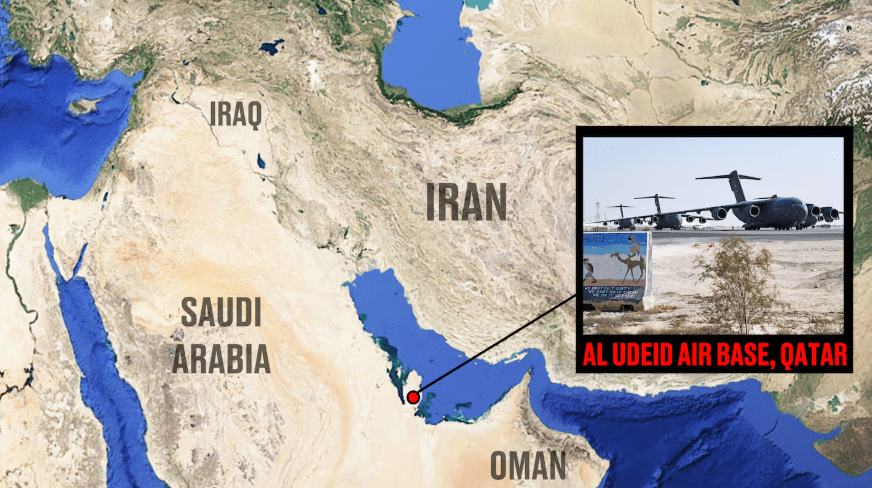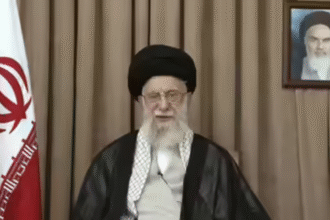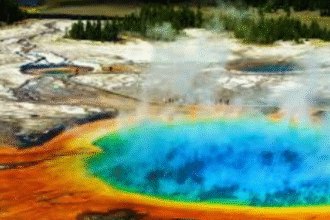In a major escalation in the ongoing U.S.-Iran conflict, Iran attacks U.S. base Qatar—launching a series of ballistic missiles at the Al Udeid Air Base, a key American military installation located near Doha, Qatar. The strike was part of Iran’s retaliation for recent U.S. air raids on its nuclear facilities.
This marks one of the most significant military confrontations in the Gulf region in recent years.
Iran Attacks U.S. Base Qatar: What We Know
On June 23, 2025, Iran attacks U.S. base Qatar in a highly publicized operation dubbed “Annunciation of Victory” by Tehran’s state media. The strike was timed precisely 48 hours after U.S. B-2 stealth bombers struck three underground nuclear facilities in Iran.
The Iranian missile barrage also included the Ain al-Asad Air Base in Iraq, another major U.S. outpost.
“This is a powerful and proportionate response to American aggression,” said a spokesperson for Iran’s Revolutionary Guards on national TV.
Missiles Intercepted, No Loss of Life
Despite the intensity of the attack, Qatar’s Ministry of Defense confirmed that all incoming missiles targeting Al Udeid Air Base were successfully intercepted by the base’s advanced air defense systems.
“No deaths or injuries were reported. All systems functioned as expected,” the ministry said in an official statement.
The strike caused minor tremors and loud explosions in Doha, leading to brief panic among residents. Qatar immediately closed its airspace, along with the UAE and Bahrain, resulting in disrupted air traffic across the region.
Why Iran Attacked Al Udeid Air Base in Qatar?
The Al Udeid Air Base houses over 10,000 U.S. troops and serves as the Combined Air Operations Center for American and allied forces in the Middle East. With critical surveillance and strike coordination capabilities, it’s one of the most strategically important U.S. assets in the region.
By choosing this target, Iran’s message was clear—no American stronghold in the Gulf is beyond reach.
However, Tehran emphasized that the attack was not directed at Qatar itself. Iranian officials claimed they purposely avoided civilian zones and coordinated with “friendly nations” to prevent collateral damage.

Was the Attack Symbolic or Strategic?
According to intelligence reports from Axios and The New York Times, Iran allegedly coordinated the timing of the strike to minimize damage. U.S. and Qatari officials were reportedly aware of the strike window in advance, further suggesting that “Iran attacks U.S. base Qatar” was more of a symbolic retaliation than a full military escalation.
U.S. Reaction and Global Fallout
President Donald Trump has not publicly commented on the attack yet, but is reportedly monitoring the situation from the White House Situation Room alongside Defense Secretary Pete Hegseth and other top officials.
A senior Pentagon official confirmed:
“The attack involved short- and medium-range ballistic missiles from Iranian territory. Thankfully, no personnel were harmed.”
Meanwhile, the U.S. State Department and allied leaders have urged both sides to de-escalate tensions before the region spirals into broader conflict.
Qatar’s Response: Defend, But Not Escalate
In an official statement, the Qatari government expressed deep concern over being caught in the crossfire. While acknowledging that Iran claimed to avoid civilian harm, Qatar said it reserves the right to defend its territory under international law.
“Any threat to our sovereignty, direct or indirect, will be met with appropriate diplomatic and defense responses,” the statement read.
Regional Consequences
- UAE, Bahrain, and Kuwait closed parts of their airspace.
- International airlines rerouted flights to avoid Gulf air corridors.
- Oil markets responded with a short-term price spike due to fears of disruption.
Conclusion: Iran Attacks U.S. Base Qatar – What Lies Ahead?
The fact that Iran attacks U.S. base Qatar highlights the fragility of peace in the Gulf and the potential for small sparks to ignite major conflicts. Though the missile strike caused no casualties, it has thrown the region into uncertainty, putting pressure on global leaders to intervene diplomatically before the next strike turns deadly.






